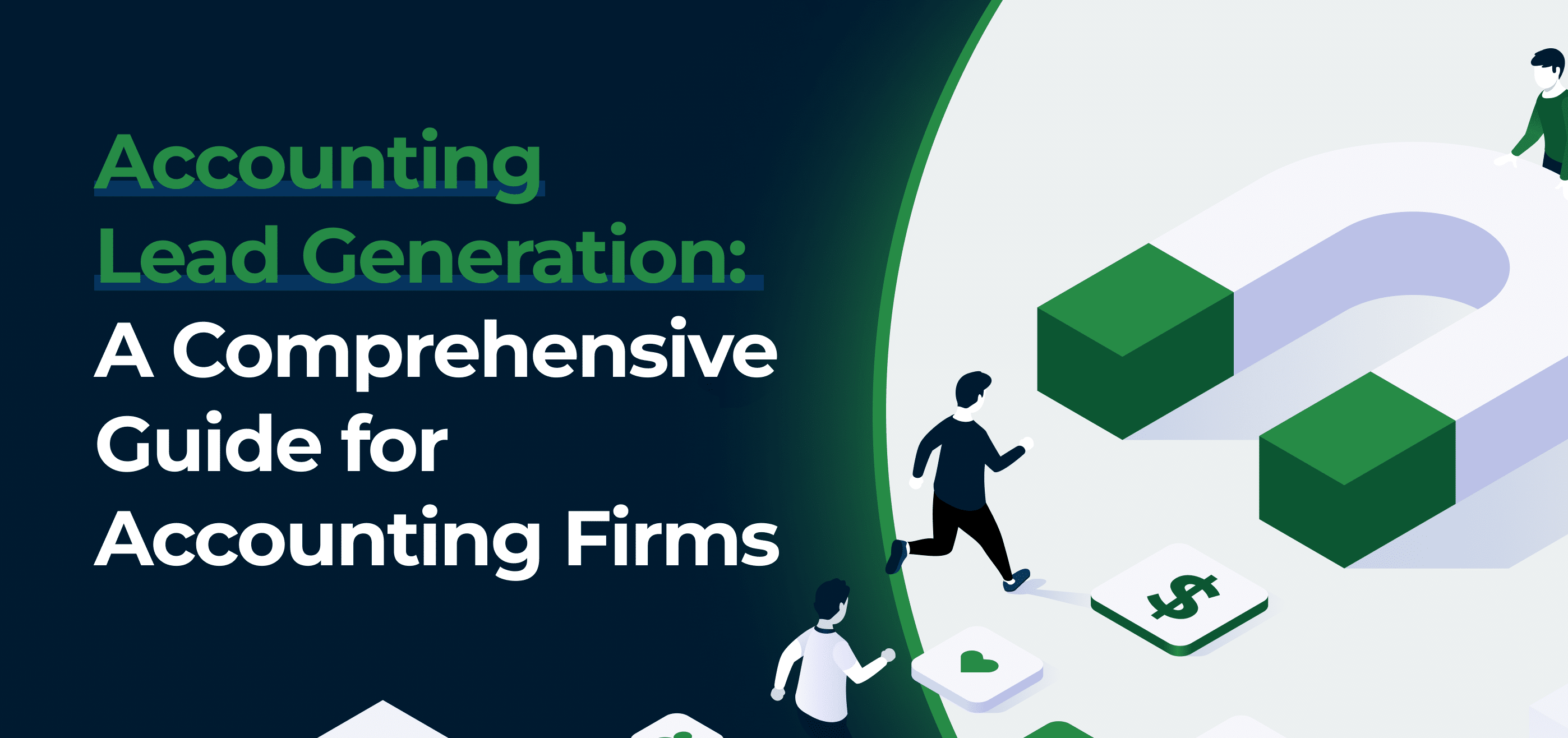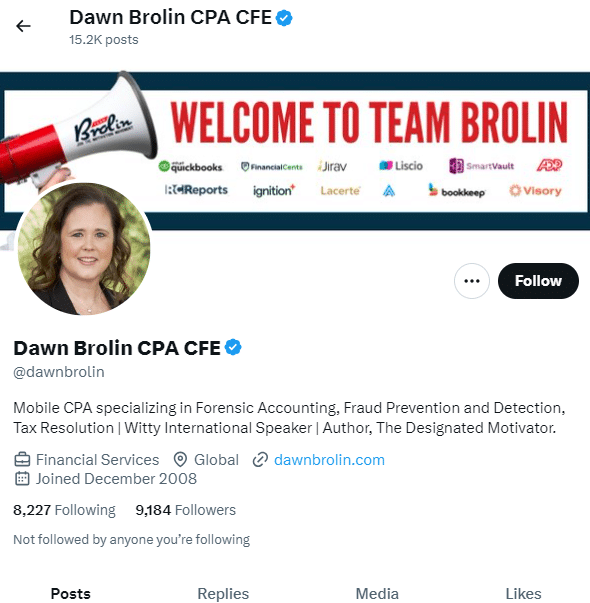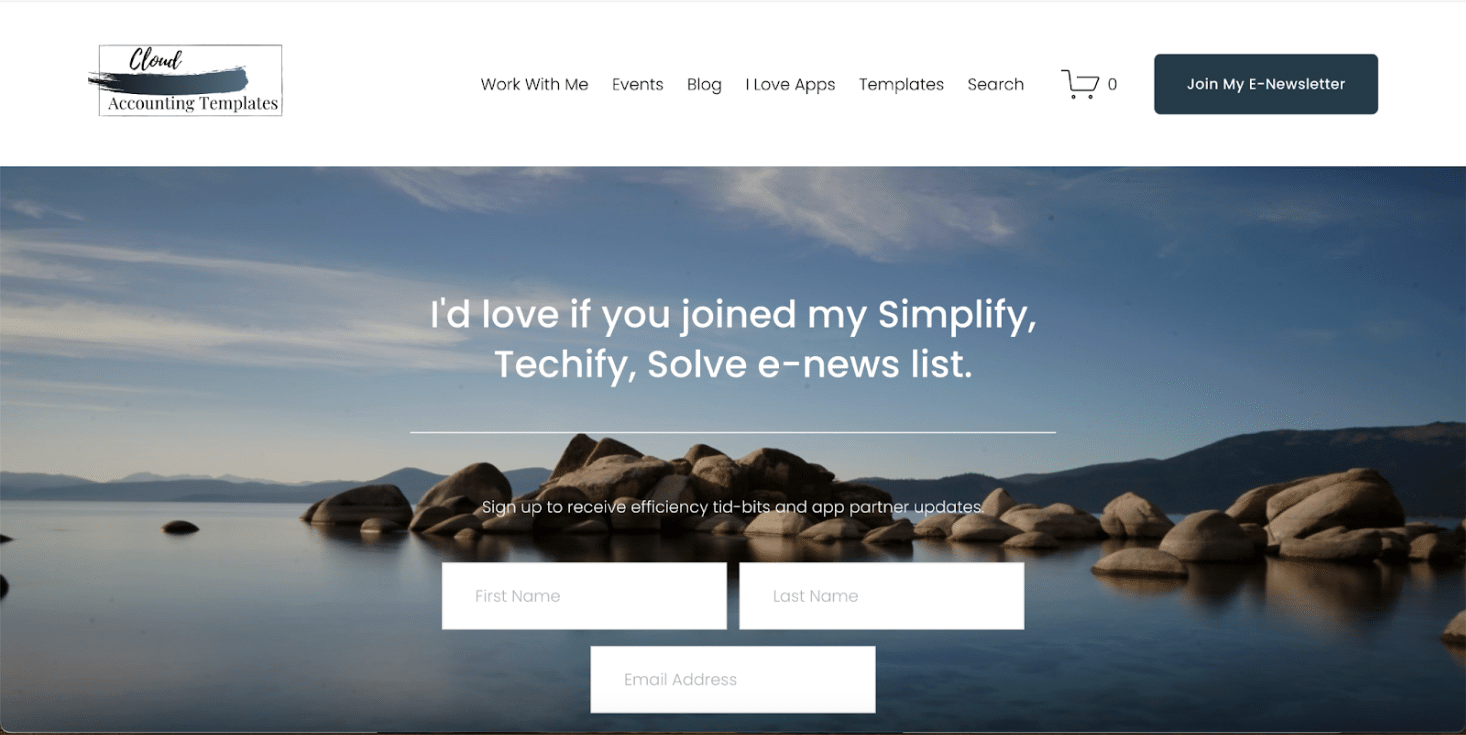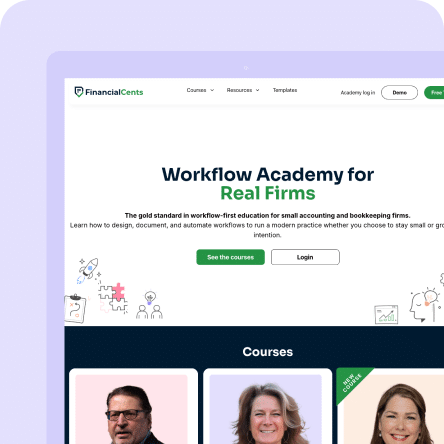Most accounting firms today do not need more clients; they need better clients. "
Jason Staats, CPAAccounting lead generation is unique in the sense that there is no shortage of accounting leads (because every business needs accounting services).
Accounting firms are looking to replace bad-fit clients with clients who are easy to work with and are happy to pay well.
Here are twelve (12) ways to generate enough accounting leads to replace those clients who make your work and life unpleasant.
First, Who is a Lead?
Ian Bouchett (a marketing expert and the founder of Ledgr Bookkeeping and Insights) defines a lead as “a person who has the potential to become a client at some point.”
To understand this definition, we need to unpack the words:
- Potential: someone with the ability to make a buying decision.
- Client: someone you like to provide your services for.
- At some point: they may not become your client this week or month, but there is a good chance of becoming one sometime later.
What is Accounting Lead Generation?
Ian Bouchett defines lead generation as “a way of making new prospective clients aware of your offerings (services) in an effort to sign on new business.”
In lead generation, accounting and bookkeeping firms have to make ongoing efforts to target their kind of clients with content and resources that help them achieve their goals or solve their problems.
This requires finding appropriate methods of collecting their contact information without being a nuisance.
12 Leads Generation Strategies for Accounting Firms
1. Streamline your firm to a Niche
Niching your services means specializing in a market or industry. Usually, this will make you an expert, a go-to person for that industry or market sooner than you imagine.
That’s because it allows you to focus your time and resources on that specific market or industry, making it easier to keep up with evolving client needs and regulatory developments.
When prospects notice your expertise and authority in an industry or market, they’re more likely to believe in your ability to meet their unique accounting and bookkeeping needs.
Niching down can improve your lead generation outcomes dramatically because people prefer to do business with an expert in a field (rather than a generalist who deals with any and every accounting and bookkeeping topic).
Checkout our Expert Interview Accounting Niche guide with Rachel Fish if you wish to dive deeper.
2. Define your ideal clients
As a business owner, you need to understand yourself (your boundaries, your goals, and the goals you want to help clients achieve) before you can effectively identify the type of people you want to work with. "
Tosin Thomas, Head of Marketing at Financial CentsIf you’re like most accounting firms, your leads are divided into three categories (according to Ian Bouchett).
- Suspect: Bouchette defines a suspect as everyone you think might be a good lead. Since there’s no data to back up your claim, every name and contact information you get is a lead.
A suspect is somebody who, from my perspective, might fit the mold of what a client looks like."
Ian BouchettAt this point, you do not know how much they need your services or how much they are willing to pay for it.
- Prospect: beyond having contact details, a prospect is someone you have communicated with. They’ve answered your phone calls, responded to your messages, and shared more information.
Prospecting involves some form of communication. Some form of connection."
Ian Bouchett- Qualified Lead: someone you have screened and found willing and able to pay for your services.
Qualified leads have an unmet need that your product or service can actually fix, address, or improve."
Ian BouchettHow do you move a suspect through the stages into a qualified lead? Richard Roppa-Roberts recommends answering three questions, among others:
Can you meet your prospective client’s goals?
Accounting or bookkeeping firm owners are eager to sign engagement letters, especially when their firms are new and hungry for clients.
This can lead to bad-fit clients that will stress you more than the fees they pay.
Don't sign a one-year agreement just because it is presented to you. Get to know that client. You want clients whose goals you have identified and can meet"
Richard Roppa-RobertsWhat are your prospective clients’ fears?
Richard believes that probing to know your new client’s fears is necessary for knowing how well you’ll be able to serve them. Clients like to talk about what their last accountant or bookkeeper lacked. This can help you meet their deliverables.
However, not all client complaints about their previous accountant or bookkeeper are truthful. The client’s complaint can also point you to their flaws.
How well do they fit into your operational structure?
How well do they fit into your operation structure? If you want your clients to communicate with clients in your accounting workflow management tool and they want to communicate by email, that might be a problem down the road.
In that way, information could slip through the cracks, which might lead to poor performance.
3. Build a Strong Online Presence
Online presence is essential because it gives your firm a digital extension of your firm, from where you can engage your clients (and leads).
The average client looks for solutions to problems online—Google and social media platforms.
If your content and contact information are not online, you’ll be unable to help your prospective clients with their burning concerns online.
An article you published can become a valuable source of guidance for a potential client, which can get them interested in using your services.
With a LinkedIn or Twitter account, you can share content to engage with people’s content to build awareness and attract prospects.
The more channels you use, the stronger your online presence and the higher your chances of being found by people needing your services.
4. Leverage Social Media
Most people (especially business owners) are on one social media platform or the other these days.
They hang out there and follow topics that matter to them, their company’s accounting needs being one of them.
By sharing helpful content on social media, you’re building a following of people who will need your services someday. When they do, you will be on top of their mind, giving you an advantage over firms waiting for prospective clients to find them.
Fortunately, building a following on social media doesn’t have to be complicated. All you need to do is create an account on the platforms where your clients (and prospective clients) are hanging out and start sharing information that can help them solve their problems and run their businesses better.
To identify what to post about, Amanda C Watts recommends answering the questions your clients commonly ask. There’s a huge chance your prospective clients will need those answers.
A client might say to you, ‘I’m struggling with my cash flow. I can't pay my team next month. What am I going to do?’ You can say, ‘Here is how I can help you solve that problem.’ Then you can turn that conversation into a social media post."
Amanda C WattsWe cover in detail social media for accountants as well as content ideas here.
5. Content Marketing
Content marketing involves sharing information to inform, educate, or entertain. It helps you to build expert positioning and awareness.
Content marketing could be blogging, social media, webinars, and podcasts. Identify the one that suits your firm’s lead generation needs and maximize it. You might need to try a few options to find what suits your goals.
When done well, content marketing puts your firm in the right place at the right time, which helps to build the Know, Like, and Trust (KLT) Factor.
People buy from the people they know, like, and trust, so the KLT factor makes you the first to be remembered by potential clients when they want to make a buying decision.
It is really important when we're doing marketing (lead generation) to do relationship marketing, and the best way to do that is through content marketing."
Amanda C Watts6. Paid Ads
Unlike content marketing, where you share posts freely to attract your ideal clients, paid advertising entails paying for a digital space to promote your firm directly to your potential clients.
Some of the best-paid advertising platforms include Google, Facebook, and LinkedIn.
These platforms are good at showing your content to your preferred audience because sometimes.
Paid advertising is effective because you can cut through the noise to target your specific audience to ensure a good return on your ad spend (ROAS).
7. Leverage Email Marketing (or Growing a Newsletter)
Email marketing entails growing a list of people you know might be interested in your services so that you can communicate with them more directly.
How do you grow the list? By using lead magnets to collect their names and email addresses. Lead magnets are helpful resources you can provide for people in exchange for their information (more of this in strategy number 10).
Email marketing is better at lead generation than social media because it enables you to own your audience.
With social media, your visibility depends on algorithms. It does not guarantee that your content will get to your target audience. In email marketing, your content goes directly into your subscriber’s inbox.
That way, you can always stay on top of your ideal client’s mind, even when they are off social media.
Need inspiration to start your own newsletter? Here’s a list of top 10 accounting newsletters you shouldn’t miss.
8. Use Local SEO or GMB
Local SEO gives your firm a better chance to be found by prospective clients in your physical location.
Search engines (like Google) will use a proximity factor (that accounts for your physical location in its search results) to show your business to searchers with local intent. The local intent identifies searchers looking for information based on where they are.
Usually, searchers may enter keywords like “Bookkeeper near me” or “Accounting firm in Washington DC,” specifying their location. But even when they don’t, Google automatically identifies the user’s location to show them relevant businesses (with their star ratings, location on the map, opening hours, and other information).
To benefit from this, you need to update your local SEO profile to appear on the first page of the search results.
One way to improve your SEO profile is to build a Google My Business (GMB) profile. This requires setting up your profile in a way Google understands to show it to prospective clients.
9. Networking and Referrals
Industry events are not only good for meeting other accounting and bookkeeping firm owners and keeping tabs on trends, but they are also great for creating awareness around your firm.
They bring you one-on-one with people who might be looking for your service, enabling you to create stronger connections.
Building relationships with other accounting firm owners also increases your chances of being referred by firm owners who might not want to take on more clients—for whatever reason.
You may be interested in:
10. Give Out Free Resources
In marketing, a lead magnet is a term for valuable pieces of content that you give away for free.
You don’t have to keep coming back to create a lead magnet. You make it once and use it to attract clients for years.
These free resources provide a quick solution to your ideal client’s problem (s). It could be an eBook that provides an in-depth answer to a question. This will showcase your expertise and topical authority to your ideal clients.
You could also create a checklist to help them know how to perform accounting tasks accurately and efficiently. When you are so helpful to them when they are not your clients, they will want to become your clients to enjoy more benefits.
For example, Financial Cents workflow checklists save accounting and bookkeeping firms the time and mental energy to document their processes from scratch. That enables firm owners to guide their teams into completing client work to standards.
When you have this much value on offer, it becomes easier for them to give you their names and email addresses.
11. Host Customer Webinars or Online Events
Similar to generating leads by networking in conferences, you can also create events that bring accounting professionals (and leads) together to discuss issues of concern.
Naturally, this positions you as an accounting thought leader and improves your credibility and influence, which can drive new leads to your business.
For example, Financial Cents organizes WorkflowCon to help accounting firm owners learn actionable steps to improve their workflows and grow their firms.
However, hosting online events can be capital-intensive. Be sure to do a cost-benefit analysis to know whether to go ahead with it or not.
12. Build Trust and Credibility
When all is said and done, trust and credibility will drive leads to your firm through your existing clients. Do you deliver projects as promised? Can your clients count on you to meet deadlines and comply with tax and accounting regulations?
Keeping to your word (and delivering on your promises) builds trust with your current clients, which can generate more leads through referrals.
Effective communication is another way to build trust and credibility with your clients. Lack of effective communication has resulted in many accounting clients changing their accountants and bookkeepers.
This has made firm owners like Casey Haynes prioritize client communication in their services.
While building my bookkeeping practice, I tracked all my blog posts. I could see how many visits we got from each blog post. When I started posting on a particular topic, I saw the visits shot up. I realized that topic resonated, so I wrote a series of eight articles about that, and ultimately, those eight blog posts ended up driving 80 percent of the traffic to my website."
Blake Oliver, CPAStreamline Your Accounting Lead Generation Efforts with Financial Cents
Ineffective workflow processes can make you lose quality leads. Streamlining your lead-tracking process will help you convert qualified leads at just the right time.
Financial Cents makes lead generation easier by providing a free accounting lead tracking template and a CRM you can use to track leads. In this short webinar, one of our customers explains how she uses Financial Cents to track leads.
After you convert leads, Financial Cents’ practice management solution will enable you to deliver quality client work and experiences by consolidating your workflow, client communication, and team management in one place.











